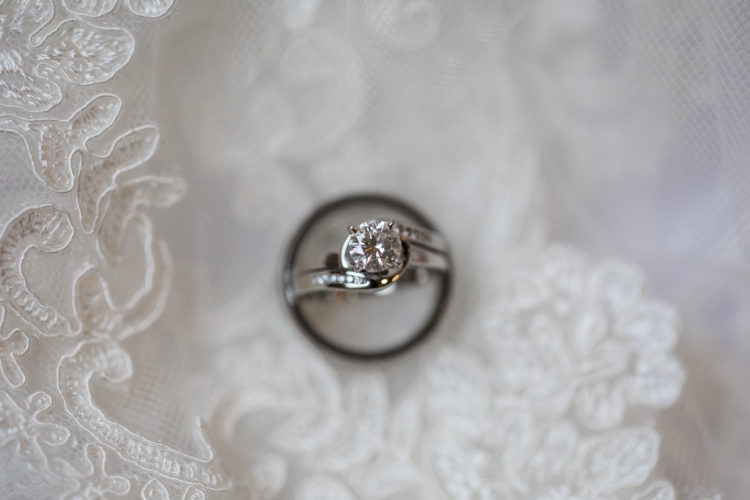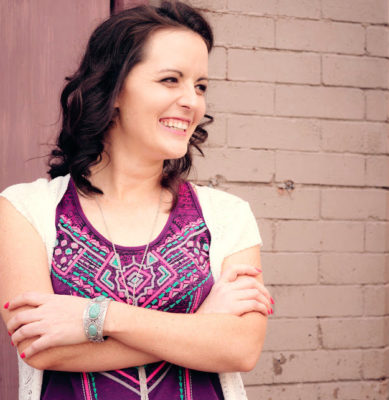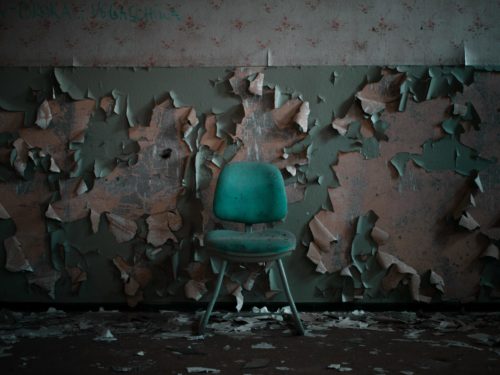How does pornography affect a woman’s marriage, when she’s the one with the problem? That’s not a question many ask and even fewer know how to answer. When we talk about porn’s effect on marriages, ninety percent of the time we’re addressing a husband’s use that devastates the wife. We talk about adultery and betrayal trauma.
But what about when it’s the woman? And what if the addiction is over?
These are questions I had when I was engaged. Getting married as a former addict felt a little bit like buying one of those abandoned storage units, not knowing what was inside. I had never been married before. I had never had sex before. Maybe everything would be fine, but what if it wasn’t?
And, of course, there weren’t many answers simply because the women who are most vocal in this field were all single… until this year. (Seriously, three of us got married this year- one in May, one in June and I in September). So, I entered marriage a little blind, not sure what I would find when I opened up that storage unit.
- Would there be flashbacks?
- Would I dissociate?
- Would I have unrealistic expectations of sex?
- Would I be disappointed in my husband?
- Would I be disappointed in sex?
My husband, as a counselor, knew as well that we were entering uncharted waters. We determined to face them together. No one could tell us what to expect. So, this blog post is my attempt to provide one woman’s perspective for any future brides asking the same questions I was.
I anticipated dissociation and frustrated expectations of sex.
When it comes to female porn addicts getting married, there are typically two main concerns: dissociation and expectations. I fully anticipated I would struggle with both as I entered my marriage.
In dissociation, a woman will essentially disconnect from sexual intimacy and “escape” to somewhere else. This is a story that seems especially common among those who are victims of sexual trauma. If sex is at all unpleasant or negative, or if it can be tied to negative experiences, then it makes sense that women would disconnect from it. It’s how we protect ourselves.
It can be a struggle for addicts too, and manifests more as a fantasy. I have seen it in e-mails sent to me by wives:
“What do I do? I can’t connect with him when we’re in bed. I have to go in the other room and watch porn in order to get in the mood. I have to imagine being in that video the whole time or else I can’t enjoy it.”
So, as I prepared for my own marriage, I feared dissociation. I had a past of sexual trauma and porn addiction. I had spent many years escaping to fantasy as a child and young woman. In my book, I share that I had created an entire world of make believe in order to cope with life.
For me, the threat of dissociation in marriage was very real.
That was what all of the experts warned would happen because I was a female addict. But it hasn’t happened.
That doesn’t mean I’m better than all of the women who do struggle with dissociation. We just have different stories. I don’t know why I don’t, because I fully expected I would.
And just because I don’t dissociate doesn’t mean that porn hasn’t affected my marriage. It has, just not in any way I remotely anticipated.
The other common threat is expectations.
Porn teaches us what to expect in sex, what to expect from our partners, what our partners expect from us, and we bring those expectations into marriage. We have expectations for bodies, for how bodies fit together, for duration, for frequency. The list goes on.
We say the same thing about Hollywood romance too. It sets unrealistic expectations that sex is going to be steamy and perfect right off the bat.
I think, though, because of the network of people I know through writing and speaking, I knew pornography gave us unrealistic expectations of sex. So, I didn’t walk in to our marriage expecting our wedding night to be a scene from a movie.
Turns out: Dissociation and expectations aren’t the only ways porn can affect a marriage.
One way pornography has affected our marriage is fear.
At the lowest point in my addiction, I was viewing violent content. While it didn’t necessarily distort my view of sex, it distorted my view of men. I believed sex was something good and enjoyable; but men- could men be trusted to make it that way? Or were all men self-serving, sexually-driven abusers who used women?
Would my husband turn into one of those men?
In some ways, this isn’t all the fault of pornography. There are instances of abuse and a background of a broken family that fuel into this particular issue in my life. It’s created a perfect storm of mistrust for me.
Still, the fear specifically surrounding trusting him sexually is something I feel is tied directly to pornography.
Sex is a beautiful interaction between two people, and a month in, it continues to take my breath away. But, it’s also unbelievably vulnerable, and part of that vulnerability is believing he isn’t going to hurt me.
As hard as that fight can be, it’s not the hardest fight.
The biggest effect I’m experiencing from pornography is how I define success in sex.
In my years of pornography, I have watched thousands of videos. That exposure teaches you what is supposed to happen. It sets a standard of what a sexual encounter is supposed to look like. Perhaps you could call that an “expectation” but because it’s what I expect of myself, I feel it gets a different category. It’s not what I expect from him or from sex; it’s a standard of performance that I have set for me.
It’s almost as if I am comparing myself to porn stars.
In our marriage, the biggest effect pornography has had is making me feel like sexual failure. My husband isn’t doing that. I am doing that to me, and it’s a trend that started even before we were married.
It’s funny, though, isn’t it? This thing being promoted as liberating and sold as something that will “spice up your sex life” actually takes away some of the joy? Instead of trust, there’s fear. Instead of freedom, there’s feelings of failure. Instead of joy, there’s shame.
Pornography hasn’t ruined my marriage but it certainly hasn’t made it better.
Pornography has affected my marriage in ways I didn’t anticipate. Just because I don’t struggle with dissociation or unrealistic expectations doesn’t mean I’m better than anyone else. What it means is our list of possible effects isn’t long enough.
If you’re a woman who struggles with or has struggled with porn and you’re worried about how it will affect your marriage, I don’t want to discourage you. My marriage is one of the greatest evidences of God’s grace in my life. My husband is patient and not afraid to hold me while I work through fears, frustrated expectations, and feelings of inadequacy. We work through them together. We grow together.
But you know what? We all come into marriage with baggage, whether we have spent time in pornography or not. That perfect girl down the street? She has baggage. Your future husband has baggage. Our lives shape us and we bring those different shapes and jagged edges into our relationships, even our marriages.
Don’t believe the lie you have to be perfect in order to get married, or that your struggle with pornography makes you unable to get married.
Yes, if you are still struggling, you should seek freedom. It’s never too late. Even if you are married, it’s not too late to fight for freedom and healing.
Pornography can shape you, but it doesn’t have to define you or your future. I was worried that my past in pornography could make my marriage horrible, that it would ruin sex for my husband and I. It hasn’t. It’s added its own challenges, but we all have them in some way.
What’s important is that my husband knows my story and loves me anyway. There is honesty in our communication. Nothing, including my past, is hidden from him. Whatever effects from my past, we now shoulder that burden together. He doesn’t look at my wounds and tell me to fix them; he comes beside me wraps his arm around me and helps me stand.
That’s the beauty of marriage and the shame of pornography can’t stand in the face of that love and grace. The intimacy of healing together is always better than the shame of hiding.





